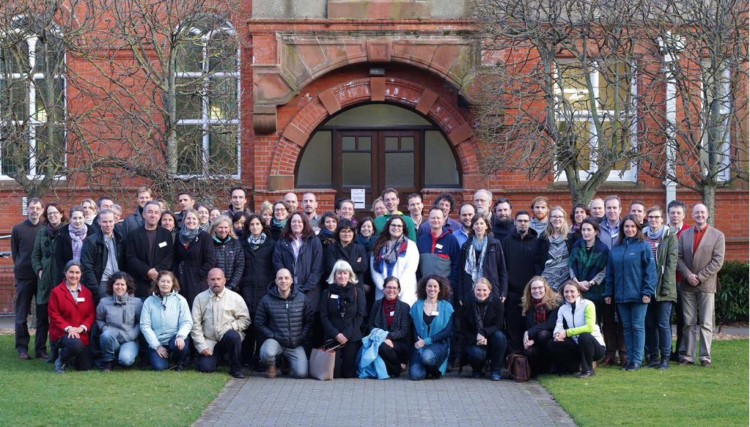
Students welcomed to #OPERAsDublin15
Three Masters students from Lund University, Environmental Studies and Sustainability Sciences, were invited to join the OPERA’s 2015 general meeting in Dublin. All with a different focus within the project for their theses, from Global to Regional to Aquatic ecosystem services, they share their experiences of the project with us…
Ellen Redford, interested in bridging the gap between academia and business.
As my first experience at an international conference, I was eager (if a little apprehensive) to meet the established group of academics and practitioners. Previous experience with working for local government in my hometown has shown me the importance of making science accessible to non-academic stakeholders, who can benefit from scientific findings in decision-making. The OPERAs project aims to do just this. Throughout the conference there was a strong focus on engaging with stakeholders in the active and enthusiastic Userboard. Also, to ensure the longevity of the project with Oppla, including blueprint frameworks to implement research design and communication strategies outside of the project.
The ‘ecosystems services’ concept at the heart of OPERAs focuses on natural capital. This provides a familiar communicative base for academics and non-academic stakeholders and enables the value of vital ecosystem functions to be factored into their decisions. The wine exemplar is an exciting way to engage industry in protecting the local and global environment on which they rely for a successful industry. As a particularly sensitive crop to climate change, grapes can act as a proxy for the adaptation of other crops.
I am now looking forward to working with Kimberley Nicholas and the regional OPERAs team, including engaging the wine industry, and how this can be translated to other industry and the wider OPERAs project.
Jonas Allesson, coming home from Dublin with a lot of new impressions and information to process.
What struck me first is the great diversity within the OPERAs team and the familiar and open feeling of the meetings and hangouts – the mix of backgrounds and specific interests brought together by a desire to move from theory to practice seems to work well and it was inspiring to see such a big project in action.
With a background in international relations, my interest in the Ecosystem Services concept stems from a frustration with the lack of tangible progress in climate change mitigation and adaptation. I'm interested in critically reviewing the Ecosystem Services/Natural Capital framework to see what works, what does not, and especially who benefits and how the effects of ecosystem valuation are distributed. While stakeholder engagement can, if done well, surely work to the benefit of both ecosystem functioning and social sustainability, I see a tendency to viewing it as panacea and sometimes not stopping to reflect on which stakeholders get to participate, which are heard, whose reality counts, and who will benefit from the process? I'm hoping I can contribute to OPERAs by asking some of those questions.
I will be working with Torsten Krause in developing my thesis, and hope to interact both with the Global exemplar and Work Package 3 on finding good questions to ask that might bring added value to the research already being done within OPERAs. Don't hesitate to contact me if you have any ideas!
Pontus Ambros, passionate about nature and marine environments.
Early in my bachelor studies I came across the concept of ecosystem services. Back then I was studying biology, and most of my studies focused on the connection between biodiversity and ecosystem services. But as I am currently enrolled in Lund University's International Master's programme in Environmental Studies and Sustainability Science (LUMES), I hope to get some new approaches on ecosystem services. I’m especially interested in ecosystem services in the coastal areas where the terrestrial ecosystems transition into marine. The unique mix of land and sea is fascinating and something I really wish to study further.
Therefore I hope to be able write my Master's thesis in cooperation with the Scottish exemplar, looking at the ecosystem services of wetlands and how their values are estimated. My desire is that I will be able to contribute to the OPERAs project and that my studies can be used to create a better understanding of how we can live with nature.
